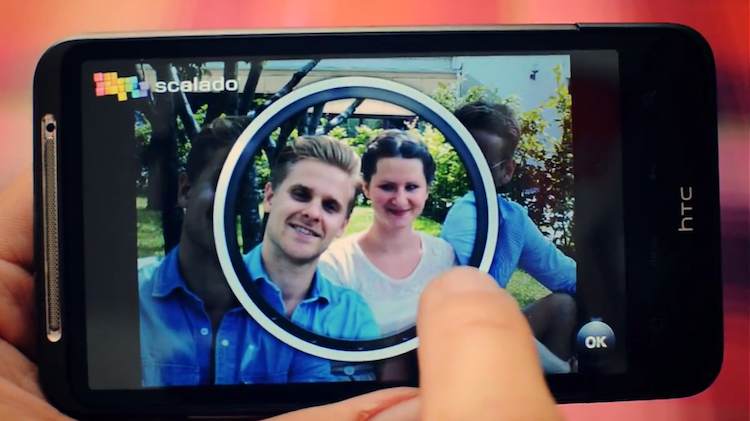
The mobile industry, much like all other industries, is constantly contracting and expanding. Thousands of startups flood the market, a larger company likes a startup's idea and said startup gets acquired. And so begins an acquisition race … or something to that effect.
One of the largest acquisitions in recent memory is Facebook’s purchase of Instagram, one of the world’s most popular photo sharing platforms. Millions of Instagram users, including myself, were distraught after hearing the news. I’ve been a user of Instagram for just shy of 18 months and sure, I use Facebook, too. But I don’t want to use the two services together, and I certainly don't want them to become a single network.
Financing a startup is just as difficult as it sounds, and the idea of outside help and being part of a bigger cause is enticing. But things change – often for the worse – when a startup gets bought. The focus from what was a single company, usually with a very concise goal and strategy, gets lumped into a much larger one, and the projected future of the startup gets completely disrupted by the endgame of the buyer.
Okay, not every acquisition is bad news. But I have watched a ton of apps, services, technologies and companies get bought over the last six years, and the majority of them disappeared and were totally forgotten, at least by users. And, in at least one instance, the service (or application) got worse.
Steve Wozniak (a.k.a. “Woz”), an avid animal lover, donated money to save Woz (a horse name after the Apple co-founder) and was at a horse rescue in upstate New York visiting his four-legged friend. On Wednesday, a video from Wozniak’s trip to the rescue made its way to the Internet. The Apple co-founder spoke on his experience with Siri and how he believes it is the future of computing. After some criticism of Apple its new assistant service, said video is beginning to make its rounds. Wozniak mentions using Siri, an artificially intelligent assistant service for the iPhone and iPod, long before Apple purchased it, and he says the service has gone downhill since the acquisition.
Wozniak gives examples of such degradation. He explains that he used to ask Siri, “What are the five largest lakes in California?” Siri would list the five largest lakes without issue. According to Wozniak, after Apple purchased the service, however, the same question would yield “lakefront properties.” He also mentions having to specifically request a Wolfram Alpha search sometimes instead of how it used to use Wolfram Alpha automatically before, based on quantifying statements.
I can't say first hand that Siri has gotten worse, but Wozniak isn't the first person I've heard (or read) saying that. And Siri is just one example.
I got excited when Google bought BlindType. The demo video on YouTube looked amazing – almost too good to be true. I've spoken with several people about the technology since, and it seems the brains behind BlindType may have made the tech come off a little better than it actually was. (No surprise there.) But there's no denying the technology was impressive. Since Google acquired them in October 2010, very little has been said of BlindType. The last I heard, Google has incorporated some of BlindType's technology in the stock Android keyboard (which makes sense, considering it has vastly improved over the last year and a half), but they have only taken bits and pieces. (i.e.: The keyboard doesn't rotate or scale with the way I type as the BlindType video portrays.)
And, unfortunately, there was yet another acquisition announced yesterday. Nokia, who has been under tons of scrutiny as of late, will be acquiring Scalado. Most of you may not know of Scalado first hand, but their camera software has found its way into over one billion phones worldwide, and continues grow by about 500 million each year.
A more front-end use of Scalado, though, was shown off at BlackBerry World last month, during a demo of some of BlackBerry 10's camera features. Scalado's Rewind and Remove technology let you edit a picture after its taken. Rewind allows you to rewind a specific area of the picture to a time where someone may not have been blinking. And Remove allows you to remove a person from a picture after the fact.
Seeing as Nokia has focused a lot of attention on cameras lately (PureView, for example), purchasing Scalado only makes sense. But I'm not happy about it. Just last month I was writing about how I hoped other manufacturers would take note of and use of Scalado's Rewind and Remove features. An acquisition means that other platforms, such as BlackBerry 10 or Android, may not see any more features from Scalado … ever. Nokia could keep Scalado's tech all to themselves and use it solely on Symbian and Windows Phone. I wouldn't expect Nokia to pull the rug out from under all Scalado's existing partners. But they can certainly stop things where they stand and inhibit further development of said partnerships.
And it's things like this that make the tech industry and acquisitions quite sad. Pretend, for instance, HTC bought TouchType (makers of SwiftKey). We wouldn't see the amazing powers of SwiftKey's language prediction software on Samsung phones, Nexus devices or any other non-HTC phones (except maybe through third-party development). That would be depressing.
Like I said, acquisitions aren't always bad. But, more often than not, apps and services are diluted beyond recognition, and we, the users, are the ones who suffer.
How do you feel about all the acquisitions that are taking place? Are you happy to see a single company take over your favorite app, service or technology? Or, like me, do you hate to see the market narrow and, likewise, the use cases or availability of such apps or services? Has one of your favorite startups or apps been swallowed by a tech giant, never to be seen again?